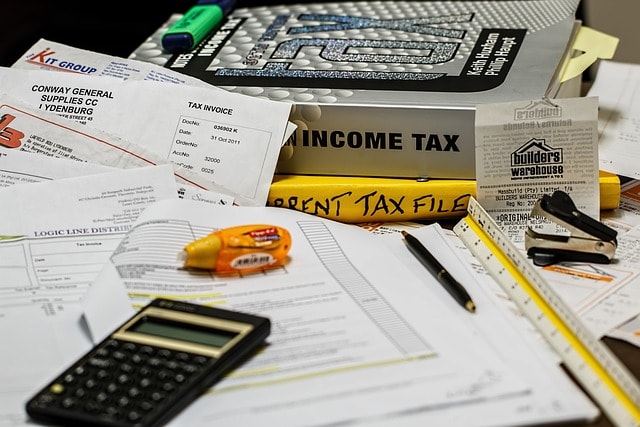What is Small Business Tax Planning?
Small business tax planning refers to the process of strategizing to minimize tax liabilities while following tax laws. This process helps small business owners understand their tax situation better. They can identify ways to lower their taxable income and reduce their overall tax burden.
Understanding various tax deductions and credits is crucial for small businesses. Deductions can include expenses like office supplies, employee wages, and equipment purchases. Knowing these can save money during tax time. Credits can directly reduce the amount owed to the government. For example, a small business might qualify for research and development credits.
Effective tax planning leads to better financial management. It allows business owners to forecast their taxes accurately, which can improve cash flow by ensuring enough funds are available when taxes are due. Small business owners may benefit from consulting a tax advisor who can provide insights into smart tax planning strategies tailored to a business’s specific needs.
Why is Small Business Tax Planning important?
Small business tax planning strategies are crucial for owners. It helps them retain more profits by reducing their tax liabilities. By understanding their tax implications, they can make informed decisions. This knowledge allows them to take advantage of tax credits and other benefits, leading to significant tax savings.
Proactive tax strategies also prevent an unexpected tax bill. Small businesses often face penalties for late payments or errors. Careful planning helps avoid these issues. Business owners can anticipate their tax burden and prepare accordingly. This foresight reduces stress during tax season.
Tax planning plays a vital role in long-term business growth. A lower tax bill means small businesses can reinvest profits into their operations. They might hire more employees, expand services, or improve facilities, contributing to long-term sustainability and success.
Business owners should regularly review their financial situation. This practice ensures they remain compliant with changing tax laws. Staying informed about new tax benefits can also lead to additional savings.
What are the best Cost-Saving Tax Strategies for Small Business?
Here are the top cost-saving tax strategies for small business owners.
Evaluate your entity structure
Choosing the right entity structure is crucial for your business’s success and sustainability. Different entity structures offer various benefits and drawbacks, so it’s essential to understand them before deciding.
Here are some common entity structures:
- Sole Proprietorship: A business owned and operated by one individual.
- Partnership: A business owned and operated by two or more individuals.
- Limited Liability Company (LLC): This type of hybrid structure combines the flexibility of a partnership with the liability protection of a corporation.
- Corporation: A separate legal entity owned by shareholders.
Regarding taxation, pass-through entities such as sole proprietorships, partnerships, and LLCs pass profits and losses directly to the owners’ personal tax returns. This means that the business itself does not pay taxes.
In contrast, corporations are subject to double taxation, where the business pays taxes on its profits, and shareholders pay taxes on dividends received from those profits. However, it may be possible to form an S-corporation, which also has pass-through taxation. Understanding these differences can help you choose the right entity structure for your business.
Utilize tax deductions
Business tax deductions are expenses that a business can subtract from its taxable income, reducing the amount of taxes owed to the government. These deductions can include costs related to operating the business, such as rent, utilities, supplies, and employee wages.
By taking advantage of tax deductions, businesses can lower their overall tax liability and keep more of their profits. However, it is crucial to ensure that your tax deductions comply with IRS tax laws.
Here are some common small business tax deductions:
Office supplies: Expenses related to items such as paper, pens, and printer ink used for business purposes.
Home office expenses: Deductions for a portion of rent, utilities, and other costs associated with a home office used exclusively for business.
Vehicle expenses: Deductions for mileage, gas, maintenance, and other costs related to using a vehicle for business purposes.
Travel expenses: Deductions for expenses like airfare, lodging, meals, and transportation when traveling for business.
Professional fees: Deductions for payments made to accountants, lawyers, consultants, and other professionals for business-related services.
Advertising and marketing: Deductions for costs associated with promoting your business, such as website development, online ads, and print materials.
Education and training: Deductions for expenses related to improving skills or knowledge relevant to your business, such as workshops, seminars, or online courses.
Determine if you qualify for tax credits
Small business tax credits are incentives the government provides to help small businesses reduce their tax liabilities. These credits are designed to encourage certain behaviors or investments that benefit the economy or society. Small businesses can take advantage of these credits to lower their overall tax burden and improve their cash flow.
Here is a list of various tax credits that small businesses may qualify for:
- Small Business Health Care Tax Credit: This credit is available for small businesses that provide health insurance to their employees. The credit can cover up to 50% of the premiums the business pays.
- Work Opportunity Tax Credit: This credit is made available to small businesses that hire individuals from certain target groups, such as veterans or people with felony convictions. The credit can range from $1,200 to $9,600 per employee.
- Research and Development Tax Credit: This credit is available to small businesses that invest in research and development activities. The credit can offset a portion of the costs associated with these activities.
- Energy-Efficient Commercial Buildings Tax Deduction: This credit is available to small businesses investing in energy-efficient commercial building improvements. The credit can provide up to $1.80 per square foot in deductions.
- Disabled Access Credit: Small businesses that make their facilities more accessible to individuals with disabilities can access this credit. The credit can cover up to 50% of the costs incurred, up to $5,000 annually.
- Green Energy Tax Credits: Incentives the government provides to encourage individuals and businesses to invest in renewable energy sources. Green energy tax credits can help offset the costs of installing solar panels, wind turbines, or other environmentally friendly energy systems, making them more affordable for consumers looking to reduce their carbon footprint and save money on their energy bills.
Defer or accelerate income
Timing can impact taxes. Businesses can defer income to the next year or accelerate it into the current year. This strategy can help manage tax expenses.
Defer Income: Deferring business income means postponing payment receipt until a later date. This can help small businesses with taxes by allowing them to delay recognizing income, potentially lowering their taxable income for the current year. Small businesses can strategically manage their cash flow and tax liabilities by deferring income.
Accelerate Income: Accelerating income refers to bringing in revenue earlier than originally planned, which can help small businesses lower their taxable income in a particular year. Small businesses can potentially take advantage of lower tax rates or deductions in the current tax year by accelerating business income, ultimately reducing their overall tax liability. This strategy can be especially beneficial for businesses looking to manage their cash flow effectively and optimize their tax planning.
Retirement plan
Setting up a retirement plan for your small business can be a smart way to reduce taxes. Contributing to retirement accounts like a SEP IRA or Solo 401(k) can lower your taxable income and potentially qualify for tax deductions. Consult with a financial advisor to determine the best retirement plan for your business and start saving for the future while minimizing your tax burden.
Use equipment or real estate depreciation
Depreciation allows businesses to spread the cost of equipment over time. This can lead to valuable tax breaks each year, reducing the overall tax burden.
Section 179 Deduction: Allows businesses to deduct the total purchase price of qualifying equipment or software during the tax year rather than depreciating it over time. This deduction can provide significant tax savings for businesses by allowing them to write off the cost of equipment or real estate in the year it was purchased instead of spreading out the deduction over several years. It is a valuable tax incentive for businesses looking to invest in their operations and improve their bottom line.
Bonus Depreciation: Bonus depreciation allows businesses to deduct a larger portion of the cost of qualifying assets in the year they are placed in service. This can help reduce taxable income and provide a significant tax benefit. The percentage of the deduction varies but is typically higher in the year the asset is acquired, encouraging businesses to invest in new equipment or real estate.
Pay down existing business debt
Paying off debt reduces interest payments and improves cash flow. This can also reduce tax liability, as some interest may be deductible.
Keep up-to-date with tax laws and changes
Tax laws change frequently. Staying informed helps small business owners take advantage of new tax-saving opportunities. Additionally, it can help avoid incurring tax penalties for failing to comply with new rules.
Consider hiring a tax advisor
A qualified tax advisor offers valuable insights. They can help identify effective tax strategies tailored to specific business needs.
What are the advantages of Small Business Tax Planning?
Small business tax planning offers significant advantages by identifying deductions and credits to lower taxable income, leading to substantial savings. It helps in making informed choices on business structure for upfront tax advantages and improved cash flow.
Updated tax laws make compliance easier and reduce the risk of penalties. Property ownership benefits include deducting costs like commercial mortgage interest and depreciation. Strategic decisions throughout the year are possible, encouraging proactive management and adjustments based on financial performance for overall business success.
What are the disadvantages of Small Business Tax Planning?
Tax laws can be complex, leading to confusion and potential mistakes in tax planning for small business owners. Hiring professionals to help incur costs that may strain tight budgets.
Overestimating deductions can trigger IRS audits, resulting in penalties and extra taxes owed, impacting business operations. Despite the benefits of tax planning, these disadvantages must be carefully considered before deciding on a tax strategy.
Small Business Tax Planning Pros & Cons
Pros:
- Helps minimize tax liabilities.
- Allows for better financial management.
- Can lead to potential tax savings.
- Ensures compliance with tax laws and regulations.
- Helps in long-term business planning.
Cons:
- Requires time and effort to implement effectively.
- May require hiring a professional tax planner, incurring additional costs.
- Can be complex and overwhelming for small business owners.
- Mistakes in tax planning can lead to penalties or audits.
- Changes in tax laws can impact the effectiveness of the plan.
How do I implement a Cost-Saving Tax Plan for my Small Business?
These strategies can help you implement a cost-saving tax plan for your small business.
Assess Financial Situation
Start by assessing your current financial situation. Look at your business income and expenses closely. Identify areas where you might save on taxes. For example, evaluate all business expenses. Some costs may be deductible, which can lower your taxable income.
Record-Keeping System
Create a detailed record-keeping system. Track all business income and expenses throughout the year. This helps ensure you don’t miss any deductions. Keep receipts and documents organized. Use software or spreadsheets to simplify this process. Good records make year-end tax decisions easier.
Consult a Professional
Consult with a tax professional for guidance. They can help develop a tailored tax strategy for your business goals. A professional can identify specific opportunities to save money. They might suggest retirement plans that benefit both you and your employees.
Frequently Asked Questions
Here are the most common questions about cost-saving tax strategies for small business owners.
What Taxes do Small Businesses pay?
Small business owners face several types of taxes. They must pay income tax on profits, which includes federal and sometimes state taxes. Self-employment tax is another vital obligation, which includes Social Security and Medicare taxes for business owners.
Payroll taxes are crucial for businesses with employees. Employers must withhold and pay a portion of these taxes. This includes Social Security, Medicare, and unemployment taxes. Failing to meet payroll obligations can lead to penalties.
Sales tax is significant for small businesses that sell goods or services. Companies must collect sales tax from customers and remit it to the state. The rate varies by location. Understanding local sales tax rates helps avoid overpaying or under-collecting.
Local taxes also impact small businesses. Property tax applies if a business owns real estate. Business licenses may be required in certain areas, adding another layer of tax obligations. These licenses often come with fees that vary by region.
When are Small Business Taxes due?
Small business owners must be aware of tax deadlines. Federal income tax returns are typically due on April 15, with an extension available until October 15 for filing, not for payment.
Self-employed individuals need to make quarterly estimated tax payments by April 15, June 15, September 15, and January 15. Missing these deadlines can result in penalties.
Additionally, state and local tax deadlines vary, with each state having its own rules. Staying organized and informed about tax responsibilities is crucial to avoid issues with the IRS and state agencies and to prevent extra fees or interest charges.
Do I need an accountant to handle Small Business Taxes?
Although not legally required, accountants can be valuable assets for small business owners, especially when handling taxes. Their expertise in tax laws ensures compliance and maximizes deductions, saving the business money.
Outsourcing tax preparation saves time and reduces stress for owners, allowing them to focus on running their businesses. While some simple businesses may handle tax filing with online software, hiring a professional becomes wise as businesses grow and finances become more complex.
How can I track my Business Expenses for Tax Purposes effectively?
Use accounting software to categorize and monitor expenses in real-time. Regularly review receipts and bank statements to ensure accuracy. This practice helps maximize deductions during tax season.
What should I do if I miss the Tax Deadline?
If a small business owner misses the tax deadline, they should file their taxes immediately to minimize penalties and interest. It is essential to communicate with the IRS or relevant tax authorities to explain the situation and request any possible extensions or payment plans.
Gathering all necessary documents and information for filing taxes accurately and promptly is crucial. Seeking help from a tax professional or accountant can also be beneficial in navigating the process and avoiding further complications.
How often should I review my Small Business Tax Strategy?
Small business owners should review their tax strategy at least once a year, preferably before the start of a new fiscal year. However, it is also beneficial to review your tax strategy whenever there are significant changes in your business, such as expansion, acquisition, or changes in tax laws.
Regularly reviewing your tax strategy can help you identify potential tax-saving opportunities and ensure compliance with current regulations. By staying proactive and up-to-date with your tax planning, you can minimize tax liabilities and maximize your business’s financial health.
Cost-Saving Tax Strategies for Small Business Owners – Final Thoughts
Effective tax planning is crucial for your small business. It helps you save money and maximize profits.
It is essential to understand the various cost-saving strategies, their advantages, and potential downsides. Implementing a solid tax plan can streamline your finances and reduce stress during tax season.
Contact us if you have more small business tax questions or to apply for a small business loan. Our alternative funding experts can help you find the best financing options for your business needs.



















